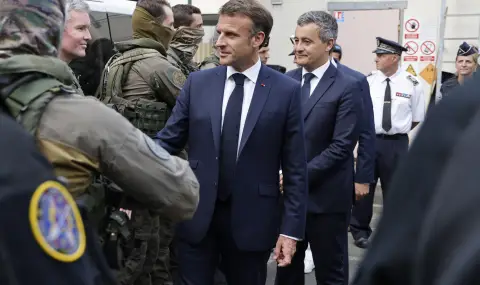President Emmanuel Macron has pledged to keep police reinforcements in New Caledonia as long as necessary to restore peace, reports Reuters. He announced that new operations would be launched to ensure the full restoration of order, stressing that there was no alternative to this approach.
During a meeting in Noumea, the capital, with political and business leaders, Macron outlined his strategy. This meeting was important because it included mayors from the areas most affected by the recent riots, along with leaders both for and against French ties.
New Caledonia experienced unrest, roads were blocked by barricades and protests. Residents are using social media to share safe routes to access essential services like food, gas and medicine.
Macron, after inspecting the riot-hit areas by helicopter, is taking a hands-on approach to the crisis. In response to the state of emergency, an extra 3,000 police officers will be sent to maintain order, a measure Macron said would continue even during the Paris Olympics if necessary. He announced that the state of emergency would end once the blockades were lifted by the protesters.
The heart of the unrest lies in fears over electoral reform passed by France's lawmakers.
Protesters say this reform could weaken the influence of the local population, who make up 40% of the island's 270,000 inhabitants, on the outcome of future independence referendums.
Despite the tension, Macron has not yet set a date for ratifying the constitutional reform, which requires approval from both houses of parliament.
Macron's meeting also included prominent local leaders, signaling an attempt to engage in meaningful dialogue.
The aim, according to Macron, is to bring all parties back to the negotiating table without preconceived plans, focusing on both post-riot reconstruction and future policy.
However, FLNKS, a pro-independence group, has expressed a desire for Macron to delay electoral reform and allow more time for discussions on the island's future.
The annexation of New Caledonia by France in 1853 and its status as an overseas territory since 1946 have long been points of contention.
The island, which is a major producer of nickel, faces economic challenges, with a significant portion of its population living below the poverty line. The unrest has also affected tourism, stranding thousands of visitors. Efforts by France, Australia and New Zealand to evacuate people highlight the international dimension of the crisis.
Macron's commitment to restoring order in New Caledonia reflects the complex interplay of historical grievances, electoral politics and the urgent need for dialogue and reconciliation.
